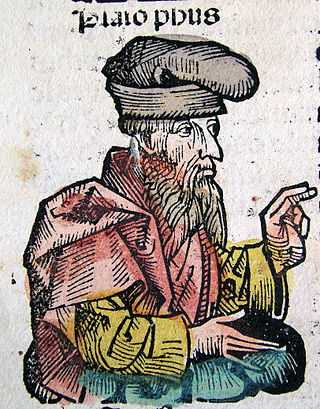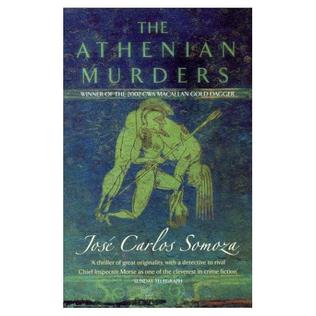Related Research Articles

Aldous Leonard Huxley was an English writer and philosopher. His bibliography spans nearly 50 books, including novels and non-fiction works, as well as essays, narratives, and poems.
Political fiction employs narrative to comment on political events, systems and theories. Works of political fiction, such as political novels, often "directly criticize an existing society or present an alternative, even fantastic, reality". The political novel overlaps with the social novel, proletarian novel, and social science fiction.

Starship Troopers is a military science fiction novel by American writer Robert A. Heinlein. Written in a few weeks in reaction to the US suspending nuclear tests, the story was first published as a two-part serial in The Magazine of Fantasy & Science Fiction as Starship Soldier, and published as a book by G. P. Putnam's Sons in December 1959.

Brave New World is a dystopian novel by English author Aldous Huxley, written in 1931 and published in 1932. Largely set in a futuristic World State, whose citizens are environmentally engineered into an intelligence-based social hierarchy, the novel anticipates huge scientific advancements in reproductive technology, sleep-learning, psychological manipulation and classical conditioning that are combined to make a dystopian society which is challenged by the story's protagonist. Huxley followed this book with a reassessment in essay form, Brave New World Revisited (1958), and with his final novel, Island (1962), the utopian counterpart. This novel is often compared to George Orwell's Nineteen Eighty-Four (1949).
Utopian and dystopian fiction are genres of speculative fiction that explore social and political structures. Utopian fiction portrays a setting that agrees with the author's ethos, having various attributes of another reality intended to appeal to readers. Dystopian fiction offers the opposite: the portrayal of a setting that completely disagrees with the author's ethos. Some novels combine both genres, often as a metaphor for the different directions humanity can take depending on its choices, ending up with one of two possible futures. Both utopias and dystopias are commonly found in science fiction and other types of speculative fiction.

The Allegory of the Cave, or Plato's Cave, is an allegory presented by the Greek philosopher Plato in his work Republic (514a–520a) to compare "the effect of education and the lack of it on our nature". It is written as a dialogue between Plato's brother Glaucon and his mentor Socrates, narrated by the latter. The allegory is presented after the analogy of the sun (508b–509c) and the analogy of the divided line (509d–511e).

Ancient Greek philosophy arose in the 6th century BC, marking the end of the Greek Dark Ages. Greek philosophy continued throughout the Hellenistic period and the period in which Greece and most Greek-inhabited lands were part of the Roman Empire. Philosophy was used to make sense of the world using reason. It dealt with a wide variety of subjects, including astronomy, epistemology, mathematics, political philosophy, ethics, metaphysics, ontology, logic, biology, rhetoric and aesthetics.
The perennial philosophy, also referred to as perennialism and perennial wisdom, is a perspective in philosophy and spirituality that views all of the world's religious traditions as sharing a single, metaphysical truth or origin from which all esoteric and exoteric knowledge and doctrine has grown.

In philosophy, Plato's epistemology is a theory of knowledge developed by the Greek philosopher Plato and his followers.
"Form of the Good", or more literally "the idea of the good" is a concept in the philosophy of Plato. The definition of the Good is a perfect, eternal, and changeless Form, existing outside space and time. It is a Platonic ideal.
Social commentary is the act of using rhetorical means to provide commentary on social, cultural, political, or economic issues in a society. This is often done with the idea of implementing or promoting change by informing the general populace about a given problem and appealing to people's sense of justice. Social commentary can be practiced through all forms of communication, from printed form, to conversations to computerized communication.

Socratic dialogue is a genre of literary prose developed in Greece at the turn of the fourth century BC. The earliest ones are preserved in the works of Plato and Xenophon and all involve Socrates as the protagonist. These dialogues and subsequent ones in the genre present a discussion of moral and philosophical problems between two or more individuals illustrating the application of the Socratic method. The dialogues may be either dramatic or narrative. While Socrates is often the main participant, his presence in the dialogue is not essential to the genre.

Thomas Taylor was an English translator and Neoplatonist, the first to translate into English the complete works of Aristotle and of Plato, as well as the Orphic fragments.

The Republic is a Socratic dialogue, authored by Plato around 375 BCE, concerning justice, the order and character of the just city-state, and the just man. It is Plato's best-known work, and one of the world's most influential works of philosophy and political theory, both intellectually and historically.
The exploration of politics in science fiction is arguably older than the identification of the genre. One of the earliest works of modern science fiction, H. G. Wells’ The Time Machine, is an extrapolation of the class structure of the United Kingdom of his time, an extreme form of social Darwinism; during tens of thousands of years, human beings have evolved into two different species based on their social class.
Social science fiction is a subgenre of science fiction, usually soft science fiction, concerned less with technology/space opera and more with speculation about society. In other words, it "absorbs and discusses anthropology" and speculates about human behavior and interactions.

The Athenian Murders is an historical mystery novel written by Spanish author José Carlos Somoza. Originally published in Spain under the title La caverna de las ideas in 2000, it was translated into English in 2002 by Sonia Soto. The Athenian Murders is Somoza's first novel to be published in English. It won the 2002 Gold Dagger Award.

A dystopia is a speculated community or society that is undesirable or frightening. It is often treated as an antonym of utopia, a term that was coined by Sir Thomas More and figures as the title of his best known work, published in 1516, which created a blueprint for an ideal society with minimal crime, violence and poverty. The relationship between utopia and dystopia is in actuality not one simple opposition, as many utopian elements and components are found in dystopias as well, and vice versa.

The following bibliography of Aldous Huxley provides a chronological list of the published works of English writer Aldous Huxley (1894–1963). It includes his fiction and non-fiction, both published during his lifetime and posthumously.
References
- ↑ Imterpreting Thomas More's Utopia By John Charles Olin Fordham Univ Press, 1989. ISBN 0-8232-1233-5
- ↑ "The Function of the Ideal in Plato's 'Republic' and St. Thomas More's 'Utopia' " by K. Corrigan Moreana 1990, vol. 27, no.104, pp. 27-49
- ↑ "Thomas More: On the Margins of Modernity " by J. H. Hexter The Journal of British Studies, Vol. 1 (Nov., 1961), pp. 20-37 JSTOR "We find it in Plato's Republic, and in Utopia More acknowledges his debt to that book."
- ↑ "More on Utopia" by Brendan Bradshaw The Historical Journal, Vol. 24, No. 1 (Mar., 1981), pp. 1-27 JSTOR "claims that Utopia not merely emulated Plato's Republic but excelled it."
- ↑ Adlington, Robert. Louis Andriessen: De Staat. Ashgate, 2004. ISBN 0-7546-0925-1 - In 1992 a CD-recording by the Schoenberg Ensemble, conducted by Reinbert de Leeuw appeared - In 1977 Andriessen had been awarded several prizes for this composition
- ↑ Franck, Matthew. "Aldous Huxley’s City in Speech: Brave New World and the Republic of Plato" Paper presented at the annual meeting of The Midwest Political Science Association, Palmer House Hilton, Chicago, Illinois, Apr 15, 2004 abstract
- ↑ "From Plato to Orwell: Utopian Rhetoric in a Dystopian World." by Deatherage, Scott. Paper presented at the Annual Meeting of the Speech Communication Association (73rd, Boston, MA, November 5–8, 1987). ERIC
- ↑ Donald McQuarie "Utopia and Transcendence: An Analysis of Their Decline in Contemporary Science Fiction" The Journal of Popular Culture xiv (2), 242–250. (1980) Digital object identifier
- ↑ The Matrix and Philosophy: Welcome to the Desert of the Real By William Irwin. Open Court Publishing, 2002/ ISBN 0-8126-9501-1 "written for those fans of the film who are already philosophers."
